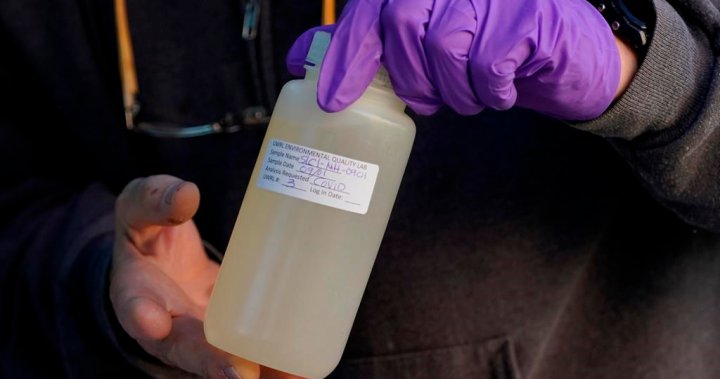Breaking News
‘Incredibly disappointing’: Ontario halts wastewater testing for COVID, other viruses

Ontario is officially ending its COVID-19 wastewater surveillance program today in a move some public health experts call shortsighted.
Dr. Fahad Razak, the former scientific director of the COVID-19 Ontario Science Table, says the province’s decision is “incredibly disappointing.”
Razak says wastewater testing gives an early indication of when COVID-19 and other viruses are on the rise.
Razak says the wastewater surveillance in dozens of communities across Ontario is useful not only for detecting COVID, but for monitoring potential threats, including the possible arrival of H5N1 avian flu.
Ontario’s environment ministry says it is “winding down” its program as the Public Health Agency of Canada expands its wastewater surveillance sites in the province.
But a spokesperson for the Public Health Agency of Canada says it only plans to test in four Ontario cities in addition to its four existing sites in Toronto, which won’t duplicate the provincial program.
“The scope of the expansion would not replace the current scope of the Ontario program,” Anna Maddison said in an email Tuesday evening.
The latest health and medical news emailed to you every Sunday.

Get weekly health news
Receive the latest medical news and health information delivered to you every Sunday.
“Ontario’s decision to not continue their wastewater testing program was not co-ordinated with PHAC’s decision to expand its wastewater monitoring program.”
Alex Catherwood, press secretary for the Ontario minister of the Environment, Conservation and Parks, said in an email that the provincial government “will work with the federal government and propose sampling sites that provide quality data for public health across the province.”
The additional federal wastewater surveillance is expected to begin before flu season this fall, Maddison said.
Razak, who is an epidemiologist and internal medicine specialist at St. Michael’s Hospital in Toronto, said many communities now won’t have the virus monitoring they need.
”(Wastewater surveillance) provides information fast enough for you to act. So knowing that you have lots of COVID cases in hospital, that’s too late to act in many ways,” he said.
“We now know that the signal from wastewater — not just for COVID, but for example for RSV — it provides an early warning system when the disease is emerging, which gives enough time for individuals to change their decision-making or (for) public health units or officials to react.”
The wastewater testing sites covered nearly three-quarters of Ontario’s population in 2023, Razak said, and also included some targeted monitoring of COVID-19 levels in high-risk places such as long-term care homes or homeless shelters.
“To me this is a significant equity issue,” he said.
“This is moving in exactly the opposite direction of what we want in the best of public health programs.”
© 2024 The Canadian Press
-

 Destination8 months ago
Destination8 months agoSingapore Airlines CEO set to join board of Air India, BA News, BA
-

 Breaking News10 months ago
Breaking News10 months agoCroatia to reintroduce compulsory military draft as regional tensions soar
-

 Gadgets3 months ago
Gadgets3 months agoSupernatural Season 16 Revival News, Cast, Plot and Release Date
-

 Tech News12 months ago
Tech News12 months agoBangladeshi police agents accused of selling citizens’ personal information on Telegram
-

 Productivity11 months ago
Productivity11 months agoHow Your Contact Center Can Become A Customer Engagement Center
-

 Gadgets3 weeks ago
Gadgets3 weeks agoFallout Season 2 Potential Release Date, Cast, Plot and News
-

 Breaking News10 months ago
Breaking News10 months agoBangladesh crisis: Refaat Ahmed sworn in as Bangladesh’s new chief justice
-

 Toys12 months ago
Toys12 months ago15 of the Best Trike & Tricycles Mums Recommend

























